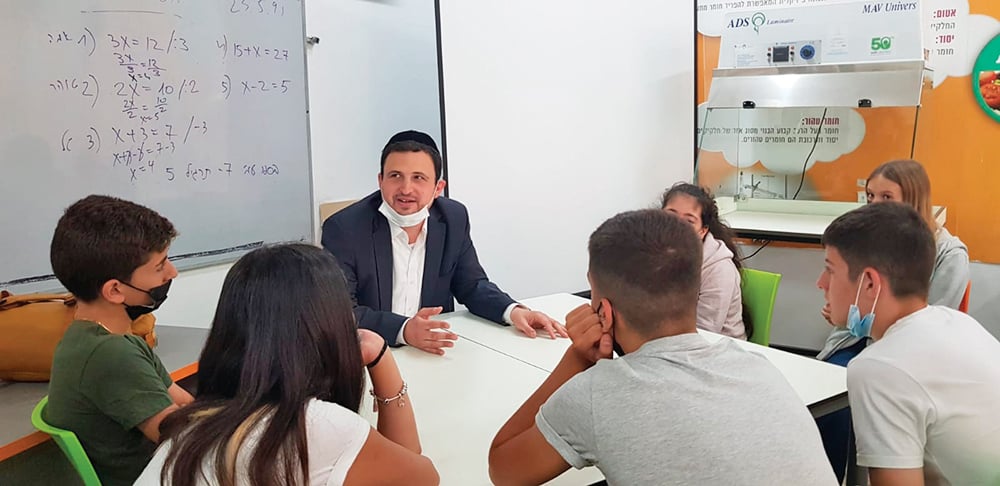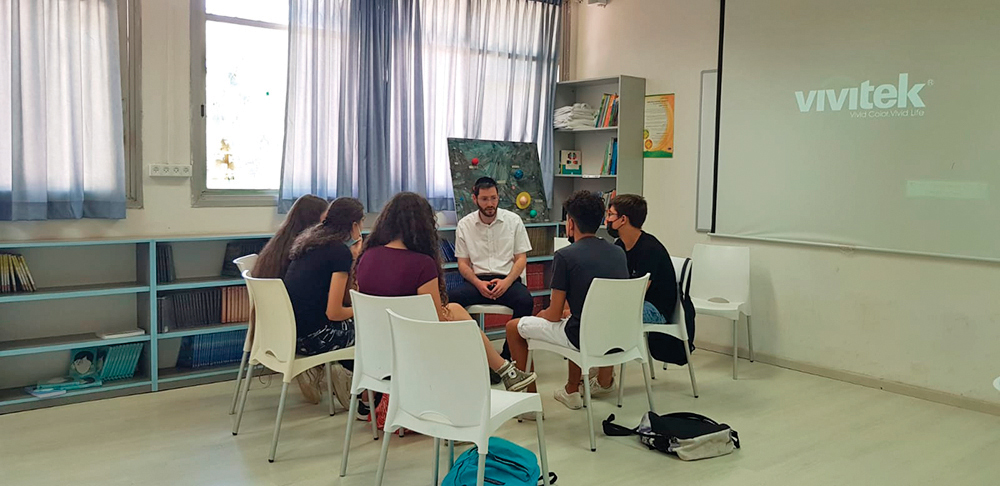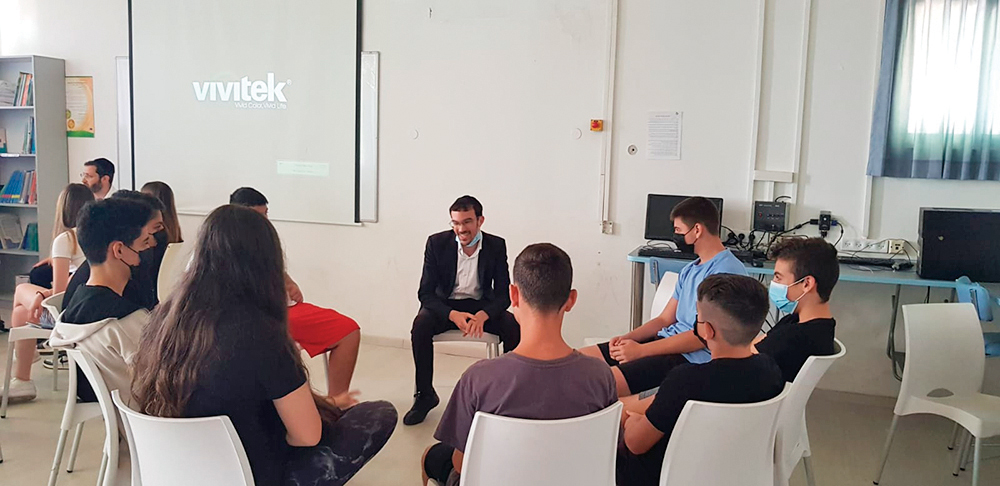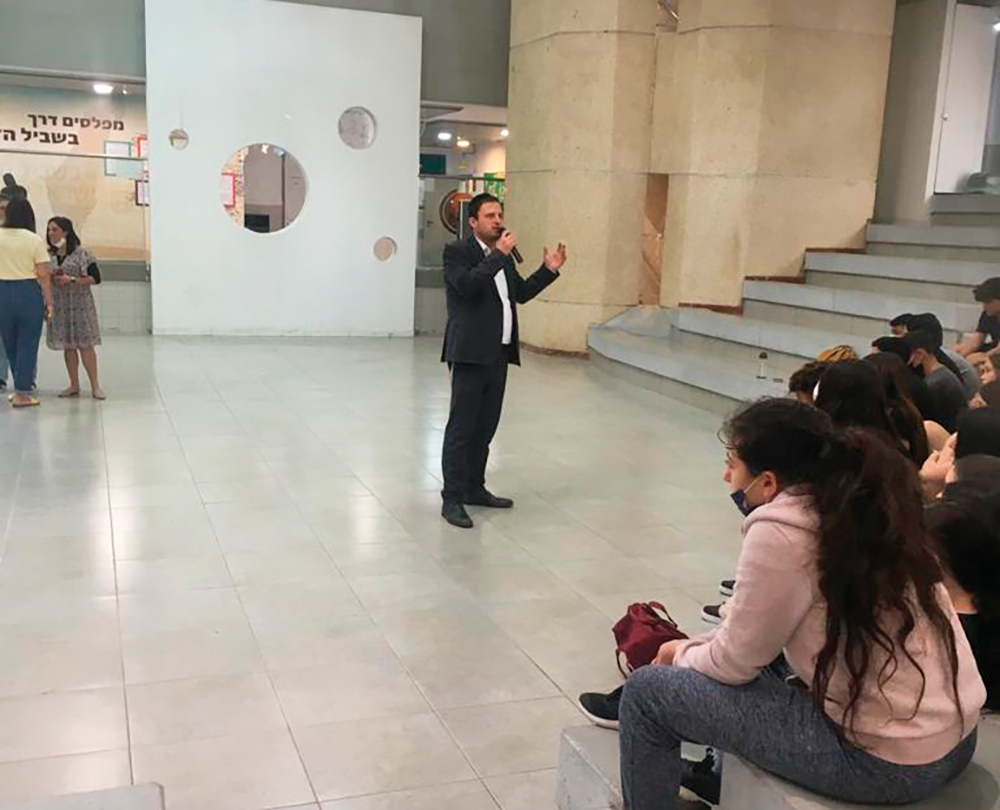
“We were preparing for October 8th 12 years ago.”
So declares Be A Mensch, an organization that has been working to bridge the secular-religious divide in Israel for over a decade. Be A Mensch (BAM) says they are quietly engineering a tectonic shift in Israel’s tattered social landscape. But why this—and why now?
One might categorize Israel’s social ills as a secondary or even tertiary concern when compared with the recent iron rain of Iranian missiles or the quagmire of Gaza, but five former IDF chiefs of staff think otherwise. Gabi Ashkenazi, Ehud Barak, Gadi Eisenkot, Benny Gantz and Moshe “Bogie” Ya’alon, in a joint 2022 interview, were of one mind that internal solidarity is a greater threat than Iran.
Public opinion has validated the united assertion of these five leaders. In a 2021 Gesher study assessing the harshest threat to Israel’s internal solidarity, 14% said the right/left conflict, 18% said the Israel/Palestinian conflict, and a shocking 65% said the charedi/secular conflict. Given the breadth of the rift between them, both secular and charedi leaders have been at a loss to devise a mechanism leading to meaningful communication.

But a potential solution emerged some 12 years ago with the publication of “Be a Mensch: Why Good Character Is the Key to a Life of Happiness, Health, Wealth, and Love,” by Moshe Kaplan, M.D., chairman and CEO of the Mensch Foundation. The book featured a compilation of socially relevant essays from luminaries such as Rabbi Dr. Abraham J. Twerski, Nobel Prize winner Prof. Robert Aumann, and IDT CEO Howard Jonas. The universal message appealing to positive character traits struck a chord. Divided Israelis now had a unifying approach all could agree to. In interpersonal encounters, just be a mensch! A humble and time-tested prescription for better interactions.
Soon after, BAM found itself at the forefront of diffusing high-profile cases of secular/charedi conflict, such as the famous case a decade ago of a young dati-leumi girl being spat on while walking to school on the border of Ramat Beit Shemesh Bet. More recently, BAM staff were the cholent providers when protesters against the government’s judicial reform marched through Bnei Brak last year. Other times, their members have made surprisingly celebrated speeches at protests arranged by virulently anti-religious organizations.

In the public eye, BAM believes in saying little and doing much. Their key activity is in establishing long-term, weekly or bi-weekly meetings between secular and charedi people. Separately, they facilitate workshops where charedi representatives field Q&A sessions from secular groups about charedi life and values.
While this may resemble how some Orthodox outreach groups operate, there is a critical difference in BAM’s operation. There is no religious agenda, no religious pressure. They don’t ask secular people to go out of their comfort zone and commit to a Torah study partner, nor ask them to come for a Shabbat. The agenda is to increase menschlichkeit—to foster real relationships, friendships, mutual respect and understanding and in the end, to change the trajectory of people’s lives toward a healthier view of the “other side.” Any religious changes made by a participant come only out of the participant’s own initiative.
Over time, word spread about curious charedim who facilitate a “safe space” for conversation, not religious coercion. As BAM likes to say, it’s Anthropology 101. Israeli charedi society is so insular that, from the secular perspective, they are an anachronistic enigma.

BAM discovered that popular TV shows such as “Shtisel” and “Srugim,” showcasing the inner world of religious communities, triggered an interest to learn about charedi culture, not dissimilar to Americans’ interest in learning about Native American culture. The groundswell of inquiry created a challenge for BAM. The mostly word-of-mouth demand for encounters currently outstrips the capacity to supply.
Asked why BAM gains access and acceptance where other groups are met with closed doors, group facilitator Moshe Shachor said: “It’s two simple things. When people know you care, they’ll care to hear you. Secondly, the respect on both sides is genuine. We insist on finding common ground up front. After all, we are extended family, sharing common ancestry. As we explore and affirm that, we find common values and a common heritage. That is something our secular brethren are motivated to explore.”

Who is knocking on BAM’s door for encounters? It’s a surprising list. Weekly meetings are conducted with hatzofim advisers (Israeli Scouts). Historically, the next generation of politicians, educators and social influencers emerge from hatzofim. The scouts’ warm regard for these meetings is evidenced by a letter to Israel’s Homefront Command during a lockdown in late 2020, requesting their meetings with BAM be classified as essential activity.
Numerous kibbutzim have found the BAM experience to be eye-opening and enlivening, often resulting in a melting away of “myth-perceptions” about charedi contributions to the betterment of Israel.
BAM was awarded a tender from the Ministry of Education to conduct group sessions with high school students across the country. Tova Aharoni, faculty member at a Tel Aviv area high school, said: “The meeting was very significant. For the first time, the students made in-depth acquaintances with charedi society. Thank you for your openness and desire to bring different factions of society together. Specifically now, during these turbulent times, you proved things can be different. I strongly recommend that every school in the country participate.”
The IDF, Israel’s natural melting pot for diverse enlistees, has called on BAM to meet with elite army units such as sayeret, maglan, and Air Force fighter pilots. But perhaps the most unexpected frontier of engagement for BAM has been among top-level business leaders, especially in the high-tech sector. Recently, a select group of them shared a half day at the Ponevezh Yeshiva to explore Talmudic principles in business practices.
The number of these varied encounters is now well over 1,000, with over 50,000 people. What’s the guiding mantra of these meetings? “No question is off-limits when asked respectfully.”

The efforts produce immediate results as prior misunderstandings and animosity give way to a desire to know more. But they pay long-term dividends as well. The heartwarming messages and feedback received during the past year, both during the judicial reform crisis pre-October 7 and during the Israel-Hamas war, have been especially meaningful for BAM staff. As Shachor observed, “While unity galvanized by grief can be short-lived, unity founded on common values, purpose, and identity persists.”
The past year saw BAM take a major step forward with the introduction of for-credit dialogue courses at Hebrew University and Reichman University (formerly IDC). The vision is to expand to all seven Israeli universities. Gavriel Sanders, an adviser to BAM’s leadership, said: “There has never been a finer hour to actualize shevet achim gam yachad. Anyone who aligns with BAM will participate in the greatest unification of the Jewish people since Har Sinai.”
To find out more, visit https://beamensch.com








